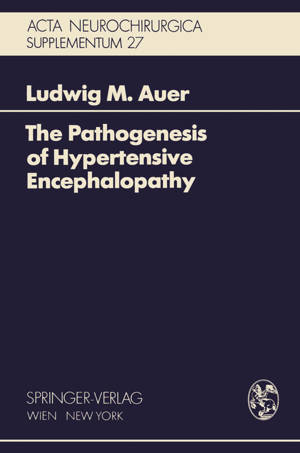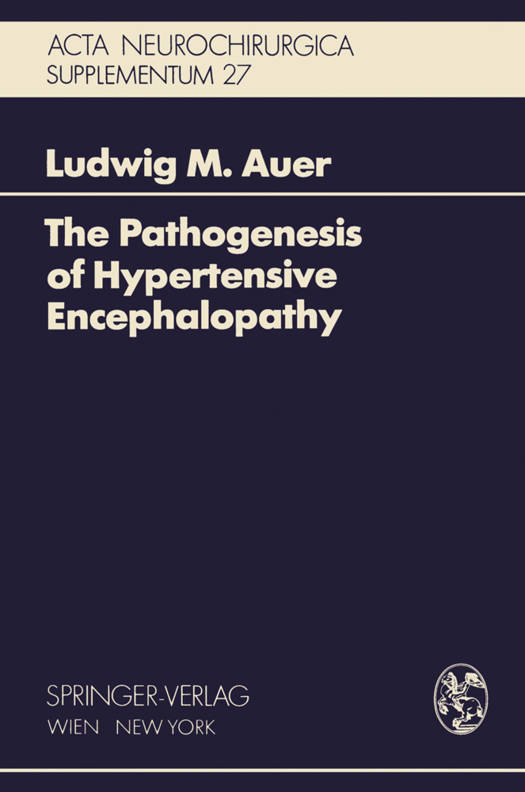
- Afhalen na 1 uur in een winkel met voorraad
- Gratis thuislevering in België vanaf € 30
- Ruim aanbod met 7 miljoen producten
- Afhalen na 1 uur in een winkel met voorraad
- Gratis thuislevering in België vanaf € 30
- Ruim aanbod met 7 miljoen producten
Zoeken
The Pathogenesis of Hypertensive Encephalopathy
Experimental Data and Their Clinical Relevance with Special Reference to Neurosurgical Patients
Ludwig M Auer
€ 52,95
+ 105 punten
Omschrijving
This monograph aims to provide a survey of recent research on the pathogenesis of hypertensive encephalopathy. Or, in other words, to relate experimental results directly to a clinical problem. I am convinced that a very important task of experimental medical research is to find applications to the relevant clinical problem as soon as possible, and to avoid distraction by an increasingly over- whelming accumulation of new information from all fields of scientific work. This is undoubtedly easier for a clinician than for a scientist who is only concerned with fundamental research; success- ful research for clinical medicine thus requires that clinicians and scientific specialists in the theoretical medical branches cooperate with each other. To fulfill this aim the clinician must be able to think in pathophysiological terms to a considerable extent, which will scarcely be possible if he is involved in routine clinical medicine alone. Experimental work thus presents a real challenge to the physician who wishes to solve a medical problem and also possesses scientific curiosity. Besides an answer to his question, he has the opportunity to obtain a real feeling for what he has learned to call "physiologi- cal". I hope with my own experimental work to provide a convincing example of how such work may serve as an impressive reminder to the clinician of the possibly grave consequences of underestimating a development in the course of a serious illness, for instance a hyper- tensive episode following head injury.
Specificaties
Betrokkenen
- Auteur(s):
- Uitgeverij:
Inhoud
- Aantal bladzijden:
- 112
- Taal:
- Engels
- Reeks:
- Reeksnummer:
- nr. 27
Eigenschappen
- Productcode (EAN):
- 9783211814901
- Verschijningsdatum:
- 15/09/1978
- Uitvoering:
- Paperback
- Formaat:
- Trade paperback (VS)
- Afmetingen:
- 152 mm x 229 mm
- Gewicht:
- 176 g

Alleen bij Standaard Boekhandel
+ 105 punten op je klantenkaart van Standaard Boekhandel
Beoordelingen
We publiceren alleen reviews die voldoen aan de voorwaarden voor reviews. Bekijk onze voorwaarden voor reviews.











